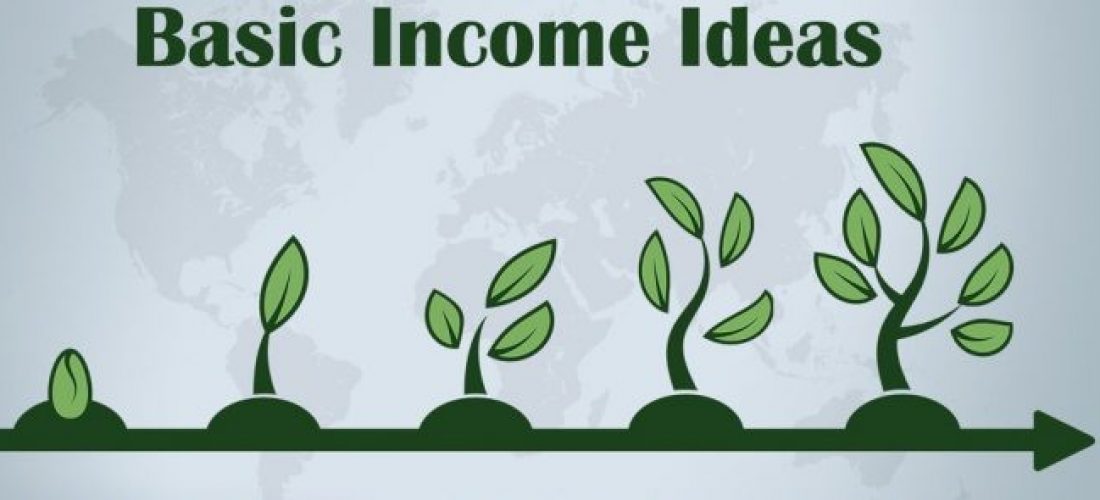Green MP Caroline Lucas has tabled a motion calling for more research into the policy. MPs are being asked to sign an Early Day Motion calling for further research Corbis. MPs in the British Parliament are being asked to consider the question of introducing a universal basic income paid unconditionally to all citizens.
An Early Day Motion on the policy, tabled by Green Party MP Caroline Lucas, calls on the Government to commission research into the idea’s effects and examine its feasibility to replace the UK’s existing social security system.
The motion, which raises the profile of the idea but is very unlikely to be adopted into law, says the policy “has the potential to offer genuine social security to all while boosting entrepreneurialism”.
Scrap benefits and bring in ‘citizens wage’ for all, Government told
A universal basic income is the idea of paying all citizens a flat, unconditional income, unusually instead of existing policies like means-tested benefits.
Proponents of the idea say it would save on welfare administration costs, reduce the poverty traps of traditional welfare states, be fair to people who have jobs, and give people more autonomy in general.
Opponents of the income have raised concerns including work disincentives, lack of targeted support for those most in need, and the size of the spending commitment required.
The motion, launched on Wednesday, has so far been backed by one other MP, Neil Gray of the Scottish National Party. MPs add their name to the motion in order to indicate support and build the profile of the issue, but a vote will not be taken.
The proposal notes the “growing crisis of low pay and precarity in the labour market”, says the existing social security system is unable to provide proper income support to people on low incomes, calls for research into basic income’s potential, and welcomes previous research taken by non-government organisations.
Ms Lucas, whose party has long supported a variant of the idea, told the Independent that there were hurdles to introducing the policy but that it deserved more research as an option.
“The basic income offers genuine social security to everyone and sweeps away most of the bureaucracy of the current welfare system. Fundamentally it would allow people the freedom and flexibility to do more of what they want to do – as well as supporting them in the caring roles they might need – or choose – to do,” she said.
“A basic income would also protect people from rising insecurity in our increasingly ‘flexible’ labour market and help rebuild our crumbling welfare state. I also know from speaking to people in my own constituency that the stability of a basic income could be a real boost to freelancers and entrepreneurs who need support to experiment, learn and take risks, while keeping their heads above water.”
“It’s crucial that any shift towards this bold new policy protects and increases the income for the poorest and those who aren’t able to work. A universal payment for all must not undermine additional help for those who need it most.
“I’m not for a second pretending that shifting to basic income would be simple. But with a rapidly changing economy the Government should be urgently exploring ways to offer people the security they need. I hope that MPs from across the House of Commons will join me in calling for more research into this bold new policy.”
The motion comes a week after French MPs were asked to consider a similar amendment to the country’s Digital Republic Bill calling for more research into the basic income idea.
Interest in the proposed policy, which has support on both the left and right of politics, has surged in recent months.
Finland has launched similar feasibility study to the one proposed in France, and Switzerland rejected a proposal for a very high basic income in a recent national referendum.
Last month the respected think-tank the RSA suggested that the UK adopt a universal basic income of £71 a week for all adults, with children also getting a payment similar to child benefit.
“The welfare state has become incredibly complex whilst locking those it seeks to help in a vicious circle of low pay, insecurity and an intrusive state. The RSA doubts the current system can be fixed,” said Anthony Painter, the report’s author.
“A system of universal basic income is the best alternative to help people improve their own lives over time – it provides better security to support people’s needs to work, learn, set up a business or care for their family.”
During the Labour leadership contest Jeremy Corbyn, who now leads the party, said he was interested in the idea of a “guaranteed social wage” – a similar proposal – but that he believed there were issued that had to be worked through.







